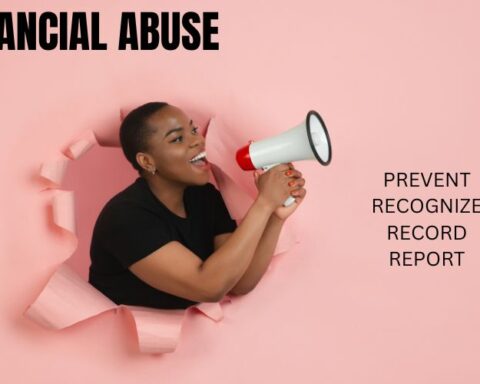Original Article | New Hampshire Legal Assistance
NHLA Senior Law Project Director Cheryl Steinberg wrote the following article for the MIE Journal Special Feature on elderly legal aid clients:
Elder financial exploitation is the illegal or improper use of income or assets of an older adult. It is a devastating and ever-growing problem. Exploiters can be professional scammers or people in a position of trust to the victim such as family, friends, neighbors and caregivers. On a national level, approximately $2.9 billion per year is stolen from seniors.
As the elder population continues to increase, this figure will only increase. Responding effectively to elder financial exploitation is challenging and beyond the scope of any one sector. As this article will demonstrate, collaborative and coordinated efforts that bring together the expertise and resources of multiple sectors offer the best outcomes.
A Lack of Effective Legal Remedies Highlighted the Need for Legislation to Effectively Combat Financial Abuse
Civil legal and administrative remedies for exploitation are many times of limited value. Once money is taken, it is usually impossible to get it back. Most often the money has already been spent and the exploiter has no assets. Even if a civil judgment is entered against the exploiter, all the victim is usually left with is an uncollectable debt — and often new financial problems.
While adult protective service agencies are charged with investigating reports of exploitation, their jurisdiction and enforcement capabilities are usually limited. For example, in New Hampshire, the jurisdiction of our adult protective agency only extended to “incapacitated” adults, which excludes many other vulnerable older adults susceptible to this type of abuse. Moreover, even in instances when a finding of exploitation is made, the most the agency can do is enter the offender’s name in its state registry and refer the case to law enforcement for criminal prosecution. Unfortunately, law enforcement has been reluctant to get involved in financial exploitation matters. Unless the incident involves an obvious crime (such as a forged check), it has been common for reports of financial exploitation to be dismissed as “family” or “civil” matters, leaving the victim with nowhere to turn and the perpetrator free to exploit other vulnerable adults.
This problem was exemplified by that the sad story of one elderly widow who contacted NHLA. Almost immediately after her husband died, “Nancy” was befriended by her next door neighbor. The neighbor promised to help take care of Nancy. Even though Nancy’s husband, before he died, had told her stay away from the neighbor, Nancy was alone and needed help. In exchange for this help, the neighbor convinced Nancy to sign a promissory note for $9,950 secured by a mortgage deed on her mobile home. She also convinced Nancy to sell all of her personal property for $1.00. Nancy also signed general and health care powers of attorney giving the neighbor authority to act on her behalf.
As soon as the power of attorney was executed, the neighbor arranged for a caregiver for Nancy without her permission. The neighbor took over paying Nancy’s bills and handling finances. The neighbor also started administering Nancy’s medication and gave some of Nancy’s medication to her boyfriend. During a two-month period when Nancy was in a rehabilitation facility, the neighbor made several unauthorized expenditures out of Nancy’s bank account. The neighbor also kept funds from a $5,000 life insurance payout that Nancy received.
Approximately a year after the neighbor had been handling Nancy’s affairs, the neighbor contacted a local assisted living facility to arrange for Nancy to move there. Within a few days of Nancy moving in to the facility, it became apparent to the facility director that something was terribly wrong. Nancy was very withdrawn and appeared to be over medicated. Nancy eventually opened up to the director and told her that the neighbor had taken control of Nancy’s finances under a power of attorney and that the neighbor had been using Nancy’s money for her own benefit. The neighbor had also taken possession of Nancy’s car.
With the facility director’s help, Nancy filed a report with the local police department and with the New Hampshire Bureau of Elderly and Adult Services (BEAS), our state’s adult protective agency. The police helped Nancy retrieve some personal belongings from her home and told the neighbor that she needed to return Nancy’s vehicle to her. The neighbor had initially refused, claiming that she was the owner of the vehicle. BEAS investigated and made a finding that the neighbor had financially exploited Nancy. Around this same time Nancy was notified by the police that there was no basis to press charges against the neighbor since the power of attorney, promissory note and bill of sale were all validly executed. Nancy asked the police if she could sell her car and he told her that she had every right to sell it since she was the legal owner. A few months later, Nancy received a letter from an attorney who was representing the neighbor threatening to foreclose on Nancy’s home per the terms of the promissory note and demanding return of “her” car. The attorney offered to settle the matter if Nancy signed a Quitclaim Deed transferring full interest in the home to the neighbor and paid $1,500 for the car.
Nancy ignored this letter. Eventually NHLA helped Nancy reject the attorney’s offer and arranged for the mobile home park to take ownership of her home since she did not want to return there. Most disturbing was that the neighbor was still living in the park and “helping” other elderly residents living there. Outraged that no criminal action had been taken against the neighbor, NHLA contacted law enforcement to discuss the case.
We were told that since the neighbor made all of the transactions pursuant to a valid power of attorney, that there was nothing that they could do and it was just a “civil matter.”
Building a Coalition and Creating a Legislative Response
To help prevent any more criminals from getting away with exploiting vulnerable elders like Nancy, in 2014, NHLA, in partnership with the Coalition Against Later Life Abuse (CALLA), collaborated with key stakeholders to introduce a bill to create the crime of financial exploitation in New Hampshire. CALLA is a multi-disciplinary team of organizations and community members working to improve response to elder abuse through increased collaboration and coordination.
Organized in 2010, CALLA focuses activities on educating its members, the general public, and service providers from all sectors. Recognizing that financial exploitation required a focused effort, CALLA created as a subcommittee New Hampshire’s first Financial Abuse Specialty Team (FAST). A FAST is a specific type of multi-disciplinary team that focuses on combatting financial abuse. FASTs are comprised of members from both the public and private sectors, including Adult Protective Services, law enforcement, attorneys, and financial experts such as bankers, securities brokers, and financial planners. The FAST can serve many functions including the following:
- Assisting service providers with special expertise on financial exploitation.
- Providing education on financial exploitation to the community and professionals who serve older adults.
- Providing advice on legislation pertaining to financial exploitation.
While the group initially focused on one county in our state, it now includes members from across New Hampshire. CALLA’s FAST members include NHLA, the New Hampshire Bureau of Elderly and Adult Services, the New Hampshire Attorney General’s Office, several financial institutions and other stakeholders. NHLA serves as one of the FAST co-chairs. Having these collaborative teams in place clearly paid off. One of our team members was a state legislator who served as the prime sponsor of the bill and strongly advocated for its passage. To ensure strong bi-partisan support, the legislator secured eleven co-sponsors for the bill from both parties and legislative bodies. Since this this type of legislation has never been introduced, we did not think that it would pass the first time. Our goal was to increase awareness of the problem and the need for criminal penalties with the hope that we would be successful in getting the bill passed the following year.
The bill, HB 1555-FN, was initially drafted by a small group of CALLA members, including NHLA. The Combating Elder Financial Exploitation language of the bill was drawn from financial exploitation laws in other states. Once an initial draft was completed, it was shared with a variety of stakeholders including the New Hampshire Attorney General’s Office, New Hampshire Department of Health and Human Services, AARP-NH, and the New Hampshire chapter of the National Academy of Elder Law Attorneys for comments. The feedback received from the stakeholders helped to greatly improve the original draft.
Once the bill was introduced, NHLA and CALLA worked on securing groups to testify in support of the bill at the public hearings. In additions to the groups mentioned above, we persuaded the New Hampshire Banker’s Association, Bank of New Hampshire, Office of the Grafton County Attorney, United Valley Interfaith Project and many others to support the bill and send representatives to testify at the hearings. We also created a packet for legislators that included a one page fact sheet about the bill, a case story, a national report on financial exploitation and a list of supporters. We also created talking points for those who agreed to testify at hearings.
While there was significant support for the bill, there were still some bumps in the road on the way to its final passage. Thanks in great part to Representative Rogers, we were able to overcome these obstacles and the bill ultimately passed both legislative bodies and was signed into law on June 19, 2014. NH Governor Maggie Hassan held a signing ceremony for the bill that was covered by media. In addition, Governor Hassan and the New Hampshire Attorney General’s Office held a press conference in December to notify the public about the new law.
Key Elements of New Law
The law, RSA 631:9 and :10, which are now new sections of the criminal code, went into effect on January 1, 2015. The new law’s statement of purpose reads as follows: “The purpose of this act is to provide clear guidance relative to actions that constitute the crime of financial exploitation of elderly, disabled, or impaired adults and to encourage the cooperation of law enforcement officials, courts of competent jurisdiction and all appropriate state agencies providing human services in identifying these crimes. It is the intent of the general court to send a clear message to the public that financial exploitation of elderly, disabled, or impaired adults shall not be tolerated and that the provisions of this act shall be liberally construed to ensure that persons engaging in these unlawful acts be held criminally liable to the full extent of the law.”
Some of the main provisions of the new law include:
- Making it a crime for fiduciaries who, knowingly or recklessly, for their own profit or advantage, deprive or take real or personal property of an elderly, disabled or impaired adult for the benefit of someone other than the adult.
- Making it a crime for a person who, knowingly or recklessly, through the use of undue influence, harassment, duress, force, compulsion or coercion acquires possession or control of an interest in real or personal property of an elderly, disabled or impaired adult or establishes a relationship with a fiduciary obligation to an elderly, disabled or impaired adult that gives the person control or interest in real or personal property or other financial resources.
- Imposing criminal penalties on offenders who know or reasonably should have known that the victim is an elderly, disabled or impaired adult.
- Giving law enforcement concurrent jurisdiction with BEAS to investigate reports of abuse, neglect or exploitation of incapacitated adults.
- Broadening protection against financial exploitation beyond “incapacitated” adults.
The new law also includes a definition of undueinfluence. Under RSA 631:8, I(i), “ ‘undue influence’ means the intentional use, by a person in a position of trust or confidence with an elderly, disabled, or impaired adult, of that position to obtain an unfair advantage over the elderly, disabled, or impaired adult, through actions or tactics, including, but not limited to, emotional, psychological, and legal manipulation.”
Thanks to this new law, people like Nancy’s neighbor can now be held criminally liable for their actions.
Current Efforts
Passage of the new law was just the first step in addressing elder financial exploitation. NHLA and CALLA are now working hard to educate law enforcement, financial institutions and service providers about the new law. We have been making presentations at various groups about the new law and in April 2016 held a full-day multi-sector leadership conference. The summit convened professionals from different disciplines to share perspectives and develop recommendations for combating elder financial exploitation. The summit will be followed up with regional meetings that engage local leaders in reviewing summit recommendations and developing regional-specific action plans.
We know that this collaborative approach will result in better and more effective strategies for combating this ever growing problem.
NHLA will continue to monitor the new law to determine whether any further legislative tweaks may be necessary and to ensure that law enforcement is utilizing it to its full potential. We also continue to assist individual victims like Nancy when civil legal remedies are beneficial.












